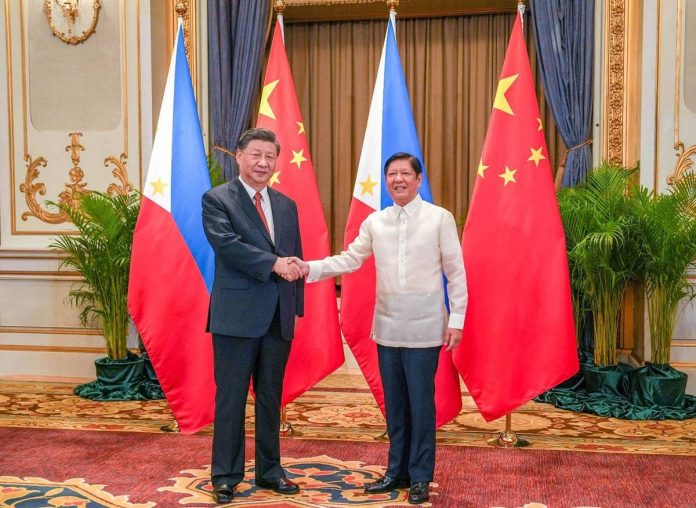Philippine President Ferdinand Marcos Jr. sought to reduce tensions in the South China Sea in a meeting with his Chinese counterpart Xi Jinping – Nikkei Asia reports.
Beijing clearly claims sovereignty over most of the South China Sea, including parts of the exclusive economic zones of Brunei, Indonesia, Malaysia, the Philippines and Vietnam.
Marcos says that the maritime dispute with China “should not be the defining element of our relationship.” A number of statements were also made, the message of which was the continuation of dialogue between the two states, and most importantly that no one “wants to go to war.”
The two leaders held similar talks during Marcos’ state visit to China in January and the APEC meeting in Bangkok last November, but as of 7 November this year, the Philippines has sent 58 diplomatic protests to Beijing.
Relations between the two nations have been going back and forth between improving and deteriorating (especially after the 2016 case). Most notably, in August, Beijing published a “standard map” that claimed territories belonging to several Asian states. This map was strongly rejected by India, Thailand and Taiwan.
The preceding two months were marked by extreme tension between China and the Philippines. Beijing has disrupted Manila’s cargo delivery missions with water cannons, made “dangerous manoeuvres,” according to the Filipinos, and was involved in a collision with a Philippine military vessel.
Julio Amador, CEO of Amador Research Services in the Philippines, said he does not expect profound changes in the relationship between the two sides, but states the following:
It would be greatly irresponsible if Marcos did not seek to find opportunities for cooperation in the West Philippine Sea; this is diplomacy at work.
But the Philippines also places the main solution to the conflict on China:
But it is China that needs to prove that it can do things differently. There is no evidence of that, as it has been consistent in what it does in the South China Sea.
China’s involvement in the Philippines’ exclusive economic zone in the past few months has been condemned by the U.S., which is allied with the Philippines.
“Being on the defensive, our goal is not to disrupt or provoke the security architecture but to ensure its stability,” Don McLain Gill, an analyst and lecturer at De La Salle University in Manila, said. “The Marcos Jr. administration has always been consistent in wanting to alleviate tensions in the West Philippine Sea through negotiation.”
Under Marcos, Manila has moved closer to Washington, a significant shift from the warmer relations his predecessor Rodrigo Duterte maintained with Beijing. In addition, in April, the Philippine government announced its intention to strengthen relations with the U.S. by opening four new military facilities under the Enhanced Defence Cooperation Agreement.
